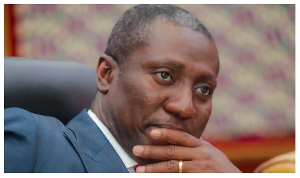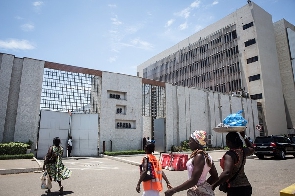Despite the coronavirus pandemic heightening the risk of debt default by customers, banks have eased their credit stance to businesses for the next two months, Bank of Ghana credit conditions survey for June 2020 has revealed.
The Summary of Economic and Financial data published by the Bank of Ghana shows that non-performing loans have increased to 15.7 percent of banks’ assets in June from 14.5 percent recorded in March – indicating that the economic pressures brought by the global pandemic have stifled businesses’ growth, making it difficult for them to pay back loans. According to the report, sectors most-affected by the pandemic – and consequently loan repayments to the banks and SDIs – include services, commerce and finance, and manufacturing.
Despite the heightened risk of debt default, banks are confident that their capital buffers can contain this risk as the banking industry’s total asset base continues to remain strong, expanding by 23.2 percent in year-on-year terms to GH¢139billion at end-June 2020 – even though their profits had been significantly hit by pressures from the pandemic.
“There are indications of a gradual rebound of credit growth, resulting from the previously announced policy measures aimed at supporting credit extension and loan restructuring in response to the pandemic’s impact on local businesses.
“Results of the latest stress tests conducted by the Bank in July 2020 are reassuring, and indicate that banks are well-positioned to withstand moderate liquidity and credit shocks due to the existence of strong capital buffers. In a typical scenario of a credit default leading to the emergence of higher NPLs, the stress test results show that the necessary provisioning can be comfortably absorbed through banks, capital buffers, with no significant reduction in capital adequacy levels,” the report said.
This development comes as a U-turn from banks’ earlier position in a survey by the central bank, which revealed that banks have started tightening their credit stance to enterprises and households in response to the challenging business environment – as gross loan advances growth contracted 0.8 percent in the first quarter of 2020 compared to 2.6 percent growth recorded same period last year
NPLs projections
According to banking consultant Dr. Richmond Atuahene, who spoke to the B&FT earlier this month, the NPLs are not expected to fall anytime soon as businesses are still reeling under the pandemic’s impact, which will make it difficult for them to pay their loans.
“Definitely, the NPLs will go up; and that is why the Bank of Ghana instructed banks not to pay dividends – so that if they do high NPL write-offs, it will not affect their capital. The simple reason is that productivity across the economy has slowed due to the pandemic; and so companies have seen revenues decline but expenses go up at the same time. So, how can such businesses pay back their loans to the banks if activities are slow. Hence, it is not going to be easy this year for the businesses, and that will affect banks’ NPLs,” he said.
Click to view details



Business News of Monday, 3 August 2020
Source: thebftonline.com
Banks ease credit stance to businesses despite high default risk
Opinions
















